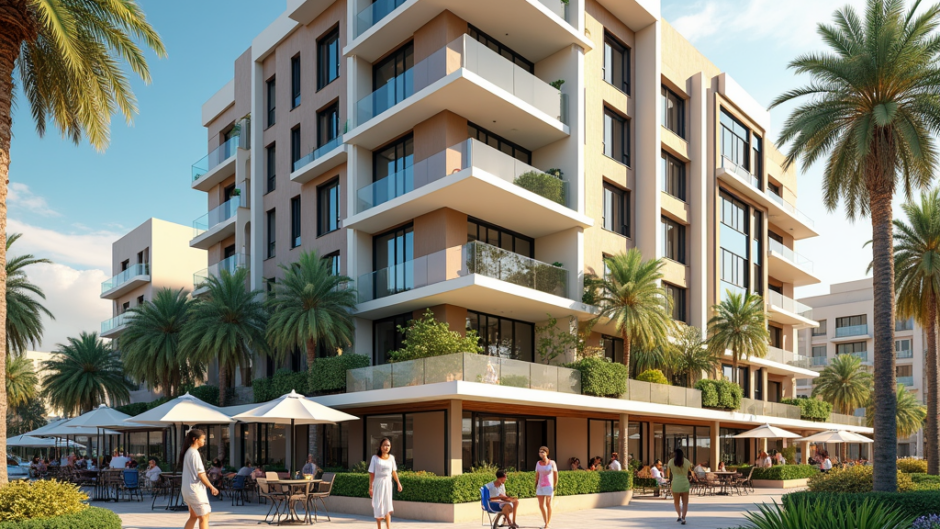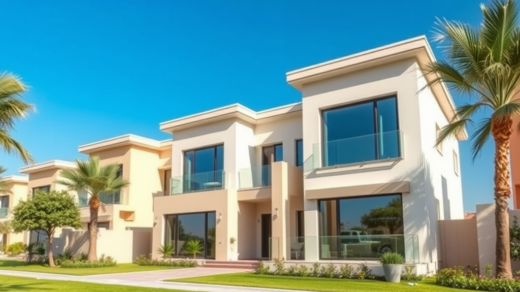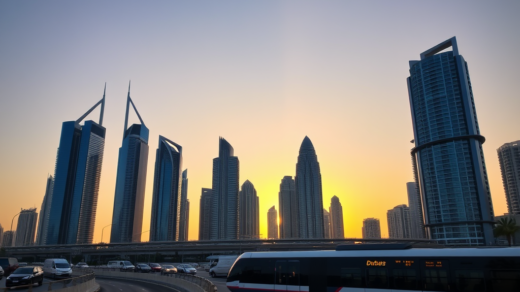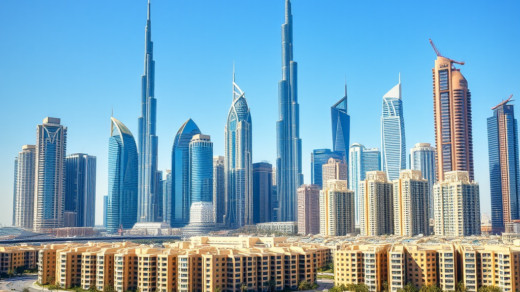The property market in Dubai presents a unique blend of opportunities and challenges for expatriates. With its booming real estate sector, favorable investment conditions, and a diverse range of properties, Dubai has become a preferred destination for many looking to make a home abroad. However, navigating this market can be complex due to various local regulations, cultural nuances, and fluctuating market trends. In this article, we will explore key considerations, investment options, and practical tips for expats looking to understand and thrive in Dubai’s real estate market.
An Overview of the Dubai Property Market

Dubai’s property market is characterized by a dynamic landscape of residential, commercial, and industrial properties. The market has shown resilience, even amidst global economic fluctuations, making it attractive for long-term investment. Key factors driving the growth of the property market include:
- Economic Diversification: Dubai’s economy has diversified beyond oil, focusing on tourism, finance, and technology.
- Tax Environment: There is no capital gains tax on property sales, making investment financially attractive.
- Regulatory Framework: Strong regulations protect buyers and renters, promoting a seamless investment climate.
- Infrastructure Development: Ongoing projects enhance connectivity and quality of life, increasing property values.
- Expatriate Friendly Policies: The government encourages foreign ownership and investment in real estate.
Types of Properties Available for Expats

Expats in Dubai have access to a wide array of property types, ranging from luxurious villas to affordable apartments. Understanding these options can help you make informed decisions. The main types of properties available for expatriates include:
- Residential Apartments: These are commonly found in popular areas like Dubai Marina, Jumeirah Lake Towers, and Downtown Dubai.
- Villas and Townhouses: Ideal for families, these properties feature more space and privacy, located in communities like Arabian Ranches and The Meadows.
- Commercial Properties: Suitable for businesses, opportunities range from offices to retail spaces in bustling districts.
- Luxury Waterfront Developments: High-end apartments and villas with stunning views, available in areas like Palm Jumeirah.
- Off-Plan Properties: Investments in properties still under construction; these can offer significant returns once completed.
Navigating the Legal Landscape for Property Ownership
Understanding the legal framework surrounding property ownership is crucial for expatriates. In Dubai, laws regarding property ownership differ for freehold and leasehold properties. Here are the essential legal aspects expats should consider before investing:
- Freehold Ownership: Expats can buy freehold properties in designated areas, granting full ownership rights.
- Leasehold Agreements: Typically offered for 99 years, leasehold agreements allow expats to occupy properties without full ownership.
- Regulatory Authority: The Dubai Land Department oversees property registration, ensuring all transactions are legally binding.
- Documentation: Proper documentation, including passport copies and a no-objection certificate, is required for all purchases.
- Financing Options: Many banks offer mortgages to expatriates, but eligibility depends on residency status and financial history.
Tips for Expats Investing in Dubai Real Estate
Investing in Dubai’s property market can be rewarding but requires careful planning and insight into local trends. Here are some essential tips for expats looking to make a smart investment:
- Research Neighborhoods: Investigate potential areas considering factors like accessibility, amenities, and future growth potential.
- Engage a Local Agent: Partnering with a knowledgeable real estate agent can provide valuable insights and access to exclusive listings.
- Understand the Market Trends: Keep an eye on property market trends, including pricing fluctuations and demand shifts.
- Perform Due Diligence: Thoroughly review property documents, especially for off-plan projects, to understand risks and obligations.
- Factor in Additional Costs: Be aware of additional costs such as maintenance fees, service charges, and property taxes.
Итог
Understanding the property market for expats in Dubai is essential for making informed and strategic investment decisions. With a diverse range of properties, favorable regulations, and a stable economic environment, Dubai remains an attractive destination for expatriates. By familiarizing yourself with the local market, types of properties, legal considerations, and investment tips, you can navigate the complexities of the market with ease. Armed with the right knowledge and resources, expats can secure their ideal property in this vibrant city, ensuring a smooth transition and a promising investment.
Часто задаваемые вопросы
1. Can expatriates buy property in Dubai?
Yes, expatriates can purchase property in designated freehold areas, allowing them full ownership rights.
2. What are the common types of properties available to expats?
Expats typically have access to residential apartments, villas, commercial properties, luxury waterfront developments, and off-plan properties.
3. What legal considerations should expats be aware of when purchasing property?
Expats must understand freehold versus leasehold ownership, engage with the Dubai Land Department for registration, and ensure proper documentation is completed.
4. Are there financing options available for expats purchasing property?
Yes, many local banks offer mortgage options for expatriates, but eligibility criteria may vary based on residency status and financial background.
5. How can expatriates assess good investment opportunities in Dubai real estate?
Researching neighborhoods, engaging with local agents, understanding market trends, conducting due diligence, and considering additional costs are vital steps in assessing investment opportunities.



